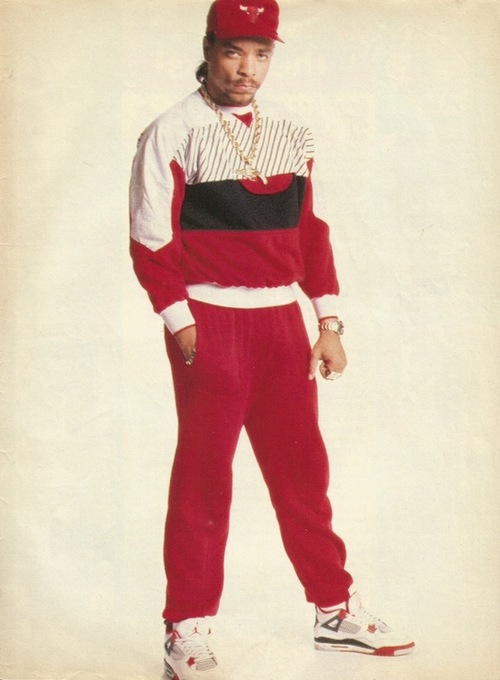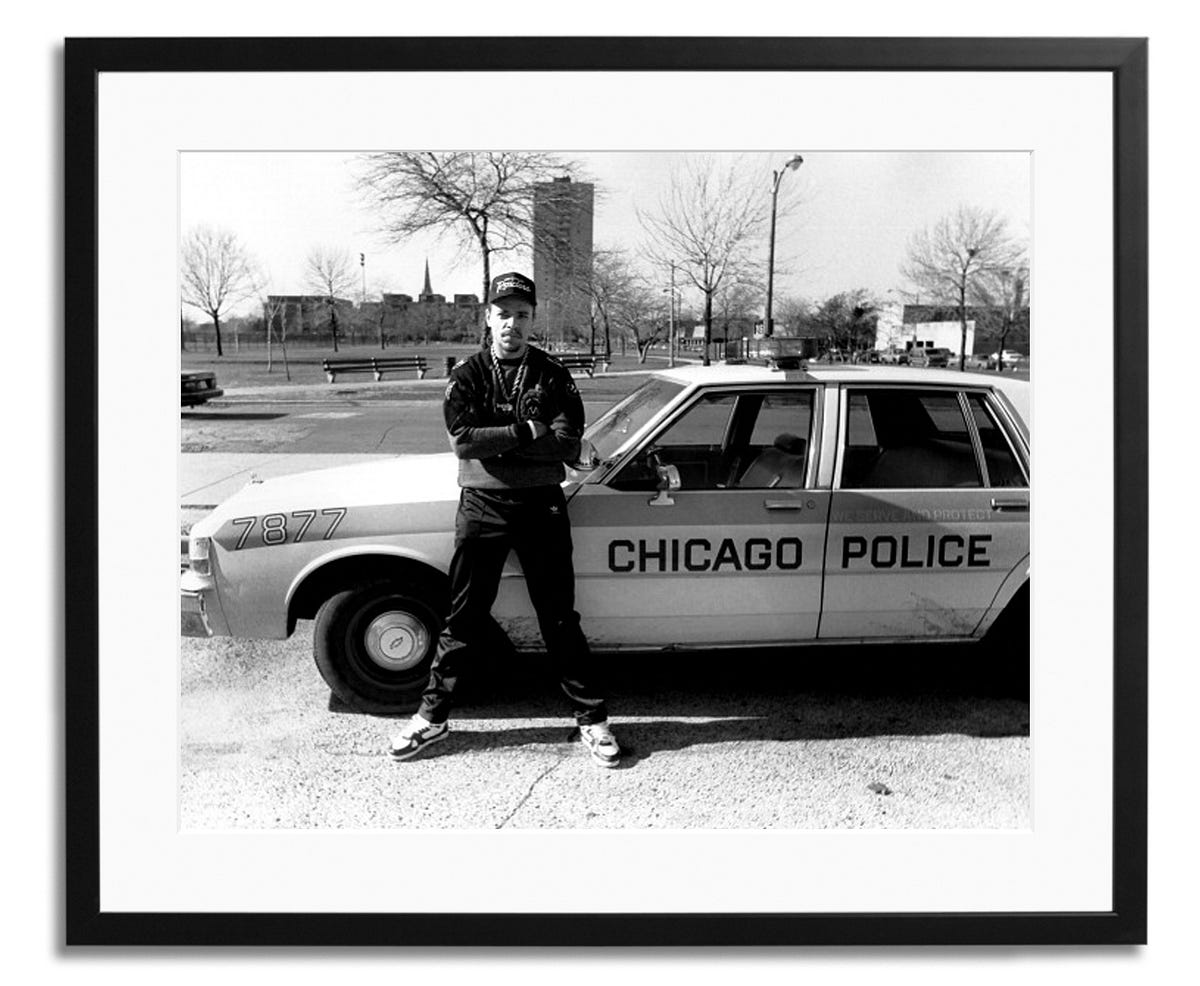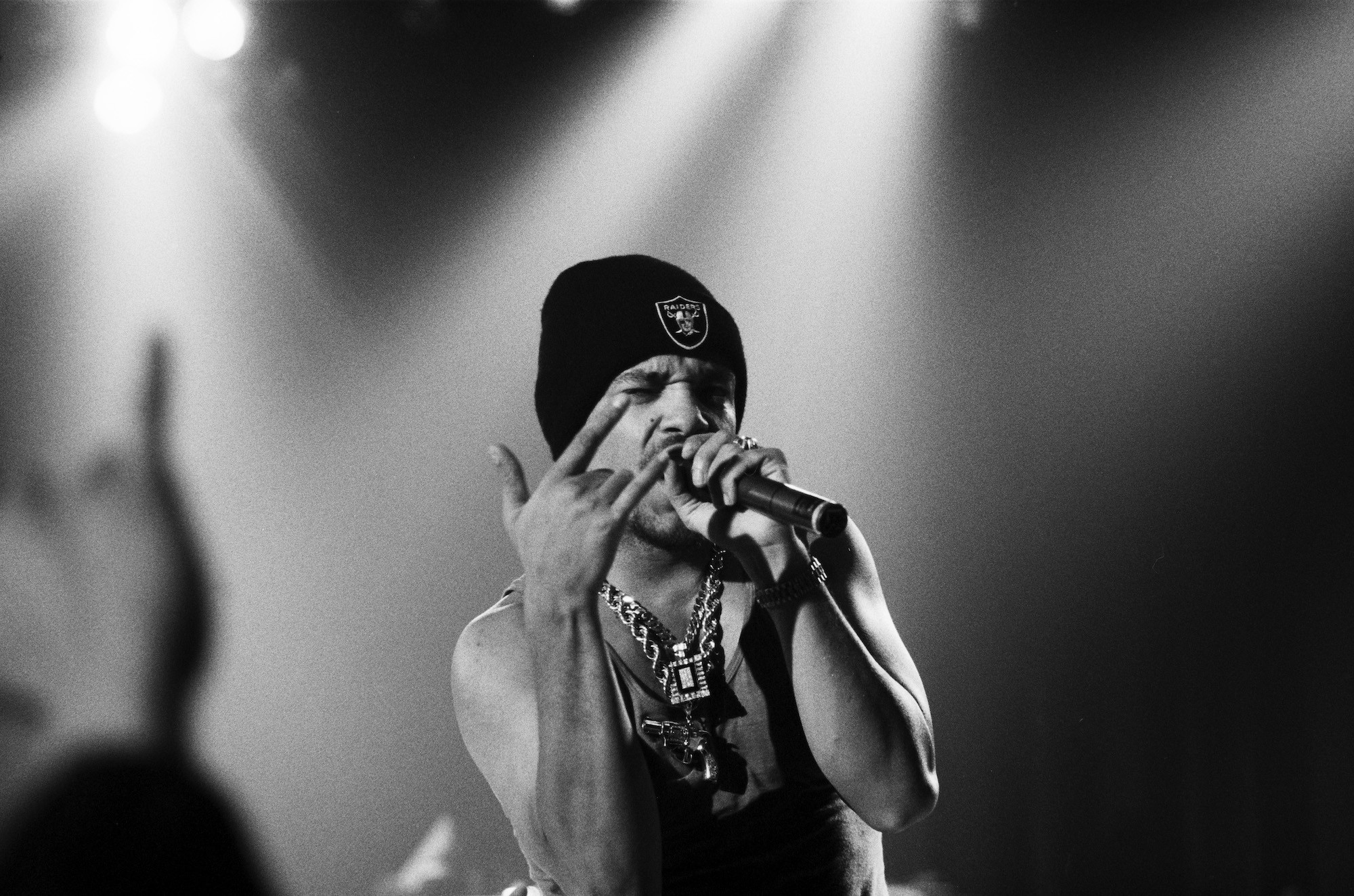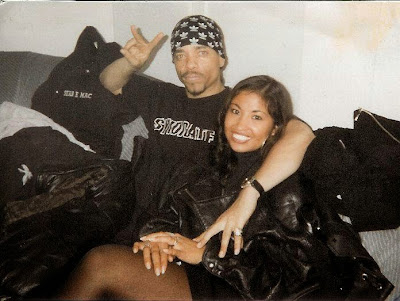by Ran

Marrow attended Crenshaw High School and co-founded a dance group called "The Lockers". During this time, he discovered the works of Robert "Iceberg Slim" Beck, a former pimp-turned-author. It was during this time that he gained the nickname, "Ice-T". The teenager became a petty criminal, selling weed and stealing car stereos and eventually fathered a child, Letesha, with his high school girlfriend, Adrienne. In the interest of supporting his daughter, Marrow enlisted in the U.S. Army, where he discovered the then-fledgling culture of hip hop.
Following a four-year stint in the military, Marrow returned to LA and resumed his criminal career, robbing jewelry stores with his associates. He embarked on a career as a hip hop DJ during this time as well, performing in local nightclubs. After one such performance, Marrow fell asleep while driving home, which resulted in a car accident in which he broke his pelvis, femur, an arm and multiple ribs. During his 10-week hospital stay, a doctor who treated Marrow's injuries informed him that he'd never be able to walk again.
Following his recovery, Marrow resumed his pursuit of a career in music, regularly performing in LA Club Radio. In 1984, he was featured on Chris "The Glove" Taylor's song "Reckless", which appears on the soundtrack for the film Breakin'. Two years later, Marrow released his signature song, "6 in the Mornin'", which borrows heavily from Philadelphia rapper Schooly D's "P.S.K. What Does it Mean?", as the B-Side to his "Dog'n The Wax". While "P.S.K. What Does it Mean?" describes Philly gang life, "6 in the Mornin'" details the life of an LA gang member. The song would serve as the inspiration to Eric "Eazy-E" Wright's classic, "Boyz N the Hood". That same year, Marrow made a cameo in the music video for rapper Joe "Joeski Love" Roper Jr.'s hit "Pee Wee's Dance".
Marrow's popularity led to a deal with Sire Records, whose founder told Marrow that he sounded like folk music legend Bob Dylan. Marrow spent the majority of the $40,000 he was advanced to record his debut album on a gold rope chain with a revolver charm. On July 28, 1987, Marrow's debut album, Rhyme Pays, was released. The album's cover art received notoriety for featuring Marrow's then-girlfriend, Darlene Ortiz, clad in a two-piece bikini and his gold chain. That same year, he recorded the title track for the movie Colors, Hollywood's take on LA gang culture, which was released the following year. The track would be regarded as the quintessential LA gang song.
Marrow's follow-up album, Power, was released on September 13, 1988. The cover art featured Ortiz in even more revealing swimwear and brandishing a shotgun. The album's songs "I'm Your Pusher" and "The Syndicate" contain James "LL Cool J" Todd disses, which sparked a two-year feud between the two rappers. Album single "High Rollers" details the lifestyles of mid to high level hustlers as opposed to the descriptions of the lifestyles of street-level criminals depicted in past songs.
The next year brought the release of Marrow's third consecutive gold album, The Iceberg/Freedom of Speech...Just Watch What You Say!, which features the single, "You Played Yourself".
In 1991, Marrow released his fourth album, O.G. Original Gangster. Having already recorded the definitive Los Angeles gang-banger track, "Colors", Marrow complemented it with the consummate New York gangster theme, "New Jack Hustler (Nino's Theme)", which appears on the soundtrack of the film New Jack City as well as O.G. Original Gangster. Not only did Marrow pen a song for the movie, he starred in it as well -- ironically, as a police officer. Later that year, he appeared in the film Ricochet, alongside star Denzel Washington. Once again, he contributed the soundtrack album's title track.
In 1992, Marrow released the controversial song "Cop Killer" with his band, Body Count. The track, a story of a character who resorts to murdering a police officer in response to being brutalized by police officers himself, debuted prior to the announcement of the verdict in the "Rodney King trial" and the subsequent LA riots. The song and Marrow were denounced by police associations and then-Vice President Dan Quayle and President George Bush, who called for Warner Bros. Records, Marrow's label's parent-company, to withdraw the track. Months after the release of the album on which it appeared, Body Count, "Cop Killer" was removed from subsequent copies, as Marrow determined that the controversy surrounding the cut was overshadowing his art.
In 1993, Marrow released his fifth straight gold album, Home Invasion, which generated controversy for its cover art, depicting a caucasian youth immersing himself in African-American street culture. Because of the cover, mega-retail chain Wal-Mart refused to carry the the album. Not wanting to embroil Warner Bros. in more political blow-back, Marrow subsequently requested a release from his contract with the label. Home Invasion, incidentally, features the song, "99 Problems", a collaboration with 2 Live Crew's Brother Marquis, which would later be covered by Brooklyn rapper Shawn "Jay-Z" Carter.





Eazy-E and Ice-T

Ice-T and Lord Finesse

Ice-T and Chris Rock in New Jack City

Darla Ortiz and Ice-T







New Jack City trailer
Ice T - New Jack Huster (Nino's Theme)
Related:

No comments:
Post a Comment